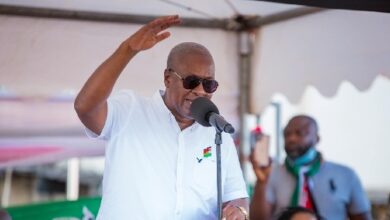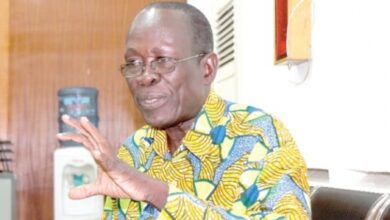
The Supreme Court is expected to deliver rulings on two applications filed by broadcast journalist Richard Dela Sky and researcher Dr. Amanda Odoi, seeking to enjoin Parliament from transmitting the Anti-LGBTQ+ Bill to the President for assent.
The panel of five, presided over by Chief Justice Gertrude Sackey Torkornoo, heard arguments from all parties on July 3, 2024, before scheduling today for the panel’s decisions.
The rulings of the panel, which also included Justice Mariama Owusu, Justice Prof. Henrietta Mensa-Bonsu, Justice Ernest Gaewu, and Justice Yaw Darko Asare, will be separate for each application.
In a televised court proceeding, the first case, titled Dr. Amanda Odoi vs. the Speaker and Attorney General, saw counsel for the applicant, led by Ernest Arko, relying on filed processes.
Counsel argued that both the Speaker and the Clerk to Parliament should be restrained by the Apex Court until after the determination of the substantive matter. He contended that irreparable damage and harm would be inflicted on the applicant if the interlocutory injunction is not granted, while the Speaker would not suffer if it is refused.
Attorney General Godfred Yeboah Dame stated, “what the (Supreme) Court ought to look at in granting an application for interlocutory injunction is whether substantial questions of law have been raised by the plaintiff.”
Counsel for the Speaker, Thaddeus Sory, opposed the application, arguing that no violation would be inflicted on the applicant if the request is refused. He said the application is a repetition of what had been put before the court earlier by the applicant, which was later struck out.
Constitutional Provisions
The parties all referred to Article 108(a)(i)(ii)(iii) and made their arguments for and against.
Article 108(a) states as follows:
Parliament shall not, unless the bill is introduced or the motion is introduced by, or on behalf of, the President:
(a) proceed upon a bill, including an amendment to a bill, that, in the opinion of the person presiding, makes provision for any of the following:
(i) the imposition of taxation or the alteration of taxation otherwise than by reduction;
(ii) the imposition of a charge on the Consolidated Fund or other public funds of Ghana or the alteration of any such charge otherwise than by reduction; or
(iii) the payment, issue, or withdrawal from the Consolidated Fund or other public funds of Ghana of any money not charged on the Consolidated Fund or any increase in the amount of that payment, issue, or withdrawal.
Richard Sky Case
In a similar but separate application, the lawyer for Richard Dela Sky, Paa Kwesi Abaidoo, pointed to the absence of fiscal impact analysis, which formed the basis for the passage of the bill.
Counsel for Parliament, Thaddeus Sory, sought leave to file it as a supplementary affidavit, but the court said it could only be useful in the substantive matter and not the application for interlocutory injunctions.
Attorney General Godfred Yeboah Dame argued that the bill ought to be stayed until the final determination of the substantive suit.
Reliefs Sought
Among the reliefs sought in Richard Sky’s writ is an order restraining the Speaker of Parliament and the Clerk to Parliament from presenting The Human and Sexual Values Bill, 2024 to the President of the Republic for his assent.
The plaintiff is also asking the court for an order restraining the President of the Republic from assenting to The Human and Sexual Values Bill, 2024, as such action will directly contravene the constitutional safeguards of the liberties and rights of Ghanaians.
He asked for “an injunction barring any attempts to enforce the provisions of The Human Sexual Rights and Family Values Bill, 2024, particularly those criminalizing same-sex relationships and related advocacy efforts.”




